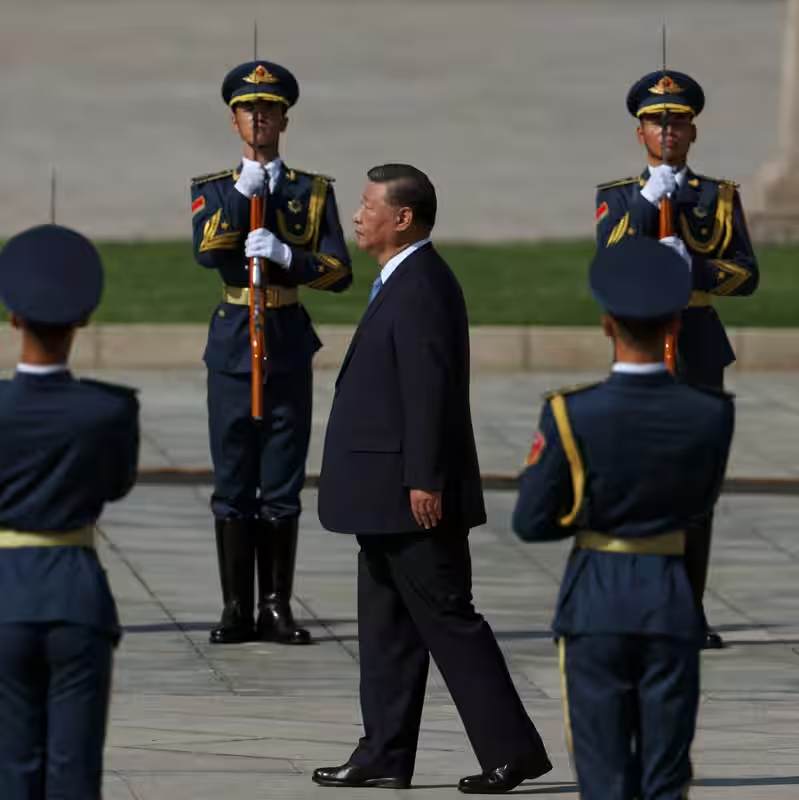Table of Contents
- Xi Succession Crisis: The Unspoken Dilemma
- Why Succession Matters for China—and the World
- No Heir Apparent in Sight
- Loyalty Over Competence?
- Historical Lessons: Gorbachev and the Soviet Collapse
- What Happens Next?
- Sources
Xi Succession Crisis: The Unspoken Dilemma
As China’s Communist Party holds its latest plenum in Beijing, one question looms larger than any policy agenda: Who will replace Xi Jinping? Despite leading China for 13 years—and reshaping its global posture—President Xi has offered no clear roadmap for leadership transition. At 72, his continued rule is no longer just a matter of political will but a growing source of uncertainty.
The Xi succession issue remains taboo within China’s tightly controlled political discourse. Yet behind closed doors, party elites are increasingly aware that the longer the question goes unanswered, the riskier China’s future becomes.
Why Succession Matters for China—and the World
China isn’t just any nation—it’s the world’s second-largest economy, a nuclear power, and a key player in global supply chains, climate policy, and geopolitical rivalries. A sudden or chaotic leadership vacuum could trigger market volatility, military recalibrations, and diplomatic realignments worldwide.
Unlike Western democracies with institutionalized transitions, China’s one-party system relies heavily on internal consensus and elite cohesion. Without a designated successor, that cohesion could fracture under stress.
No Heir Apparent in Sight
Observers have scanned China’s Politburo Standing Committee—the apex of party power—for signs of a potential heir. Yet none of the current members, mostly in their 60s, appear positioned to take over. Xi has systematically sidelined potential rivals and promoted loyalists, many of whom lack the stature or experience to assume supreme leadership.
“Xi almost surely realizes the importance of succession,” said Neil Thomas of the Asia Society Policy Institute, “but he also realizes that it’s incredibly difficult to signal a successor without undermining his own power.”
Loyalty Over Competence?
Recent purges reinforce this trend. Just days before the plenum, China’s military expelled nine senior officers on corruption charges—a move widely interpreted as Xi tightening control and eliminating disloyal elements.
Any future successor will likely be chosen less for vision or reformist credentials and more for unwavering allegiance to Xi’s agenda. That could mean continuity in China’s assertive foreign policy, tech crackdowns, and zero-tolerance stance on dissent.
Historical Lessons: Gorbachev and the Soviet Collapse
Xi has openly criticized the Soviet Union’s choice of Mikhail Gorbachev, calling it a “fatal mistake” that led to the USSR’s dissolution. For Xi, reform without ironclad control is a recipe for collapse.
This historical trauma shapes his reluctance to name a successor. Yet the irony is clear: by refusing to plan for transition, he may be increasing the very instability he seeks to avoid.
What Happens Next?
While the current plenum focuses on economic resilience and national security, the Xi succession question remains the elephant in the room. Analysts suggest that if Xi serves a fourth term—possible under constitutional changes he pushed through in 2018—he could remain in power until 2030 or beyond.
But time is not on his side. As he ages, the window to groom a credible successor narrows. And without a transparent mechanism for leadership change, China risks a future defined not by strength, but by succession shock.




